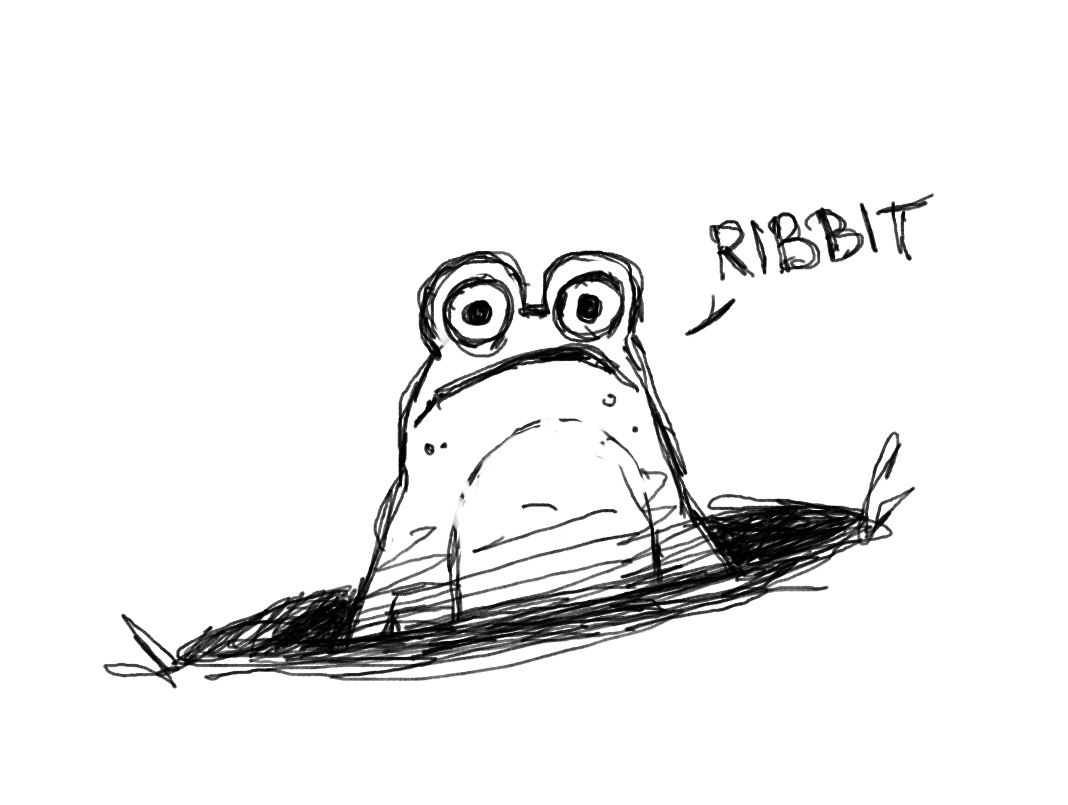:3
Everything is barely weeks. Everything is days. We have minutes to live.
- about me
- Github: @r1bb1t-h0l3
Everything is barely weeks. Everything is days. We have minutes to live.

Posted
[The clown] is a fantastic being, one possessed of an alternate biology, a biology that can withstand blows to the head by hammers and bricks that would be deadly for any mere human, and the clown can sustain falls that would result in serious injury for the rest of us. Not only are clowns exaggeratedly misshapen and, at times, outright travesties of the human form – contortions played on our paradigms of the human shape – they also possess a physical resiliency conjoined with muscular and cognitive disfunctionalities that mark them off as an imaginary species.¹³
This interstitiality exhibited by the clown allows it to shift from a horrific monster to a (sometimes) funny sideshow entertainer. Replace the jolly, goofy smile of a clown with rows of razor-sharp teeth, and suddenly it plays a frequent part in many people’s nightmares.
Excerpt from: “Babbling Corpse: Vaporwave And The Commodification Of Ghosts” by Grafton Tanner.
Posted
In science fiction, ghosts in machines always appear as malfunctions, glitches, interruptions in the normal flow of things,” writes cultural theorist Janne Vanhanen. “Through a malfunction, a glitch, we get a fleeting glimpse of an alien intelligence at work.
Excerpt from: “Babbling Corpse: Vaporwave And The Commodification Of Ghosts” by Grafton Tanner.
Posted
one day you will find out about Death with a capital D, and at that moment, in the unlikely event that she gives you time to do so, you will understand the real difference between the relative and the absolute, between full and empty, between still alive and no longer alive.
Excerpt from: “Death with Interruptions” by José Saramago.
Posted
1. Tabula rasa: Literally meaning “blank slate,” it refers to the idea that something is empty or devoid of content, like a clean slate waiting to be filled.
2. Vacantia plena: This phrase translates to “emptiness full,” suggesting that emptiness or void can be filled with meaningful or valuable content.
3. Inane et vacuus: Meaning “empty and void,” this phrase highlights the idea of emptiness and nothingness.
4. Vacua ab omni sensu: Translated as “empty of all meaning,” it conveys the notion of complete emptiness or lack of significance.
5. In vacuo: This phrase translates to “in a vacuum” and is used to describe a situation or condition where something exists in isolation or without any external influence.
6. Vacuus sine cura: Meaning “empty without care,” it expresses the idea of emptiness or void without any concern or worry.
7. Inanis et vacuus: This phrase refers to being “vain and empty,” suggesting a state of emptiness or lack of substance.
Posted
“Deus absconditus” is a Latin phrase that translates to “hidden God.” It is a theological concept that refers to the idea that God has hidden himself from humanity, either by choice or by necessity. This idea can be found in many religions and philosophies, but it is most commonly associated with Christian theology.
I think it is qute fascinating how the philosophy of God evolved from the Old Testament idea of an almost a Greek-like, very present, very feisty deity into the absent god. It took a while to get there, and it’s an interesting to think about why earlier generations felt the presence of a god that much more potently. Perhaps the general saturation of everyday life in religious meaning waned with time, so God also receded into the unknowable.
The concept of “deus absconditus” originated in the writings of the German theologian Martin Luther. Luther argued that God had hidden himself from humanity as a result of the Fall of Man. According to Luther, before the Fall, God was present and visible to Adam and Eve in the Garden of Eden. However, after they sinned, God withdrew from human view, and now only reveals himself through faith.
The notion of a hidden God is not unique to Christianity, however. It can also be found in Jewish and Islamic theology, as well as in the writings of many philosophers. For example, the philosopher Friedrich Nietzsche used the concept of “deus absconditus” to describe the loss of faith in God in modern society. Nietzsche believed that God had died, but that humanity had not yet fully recognized this fact.
In general, the idea of a hidden God is used to explain the apparent absence of divine intervention in the world. It is often associated with the problem of evil, or the question of why a benevolent God would allow suffering and injustice to exist. By positing a hidden God, theologians and philosophers attempt to reconcile the existence of evil with the belief in a loving God.